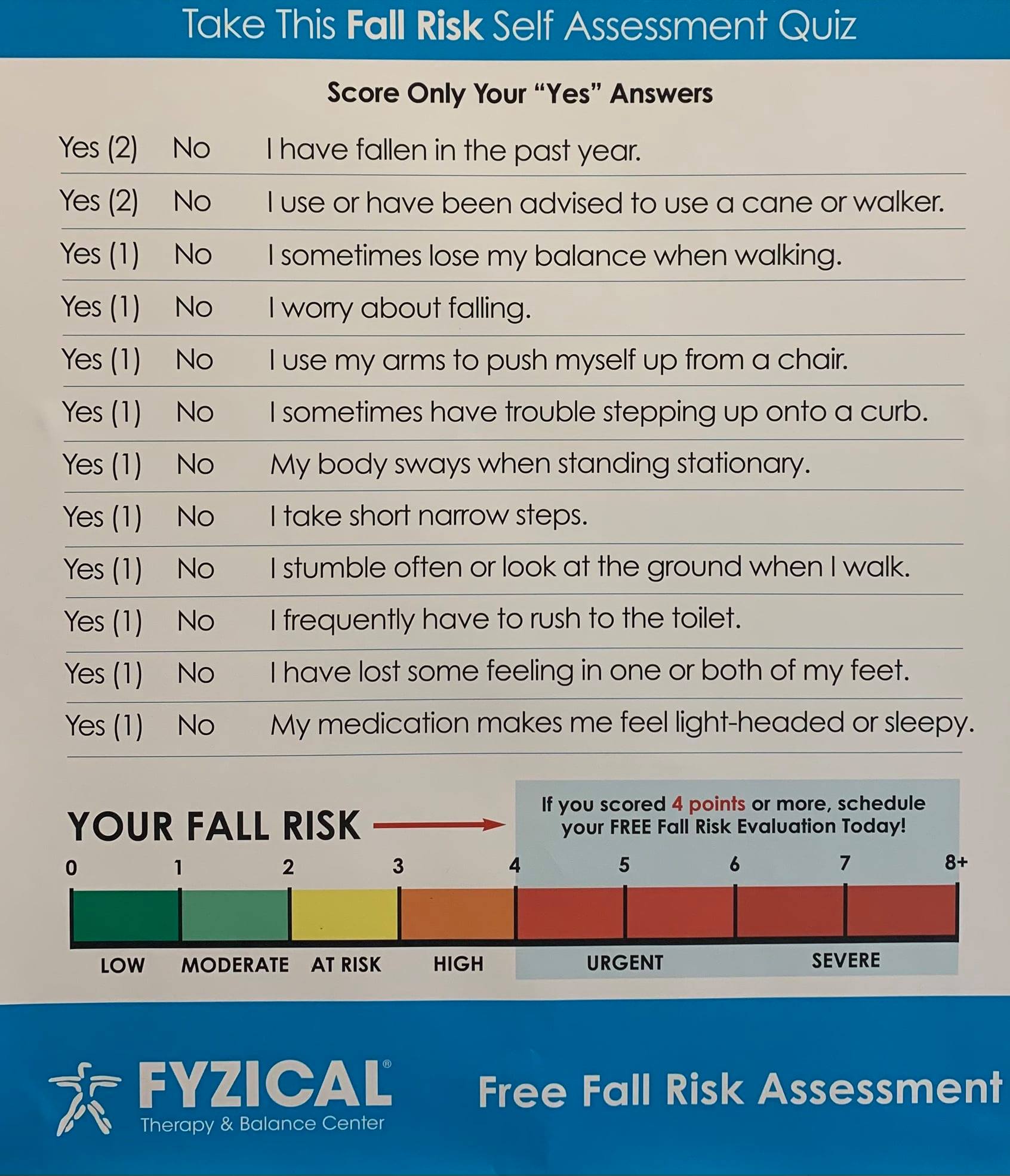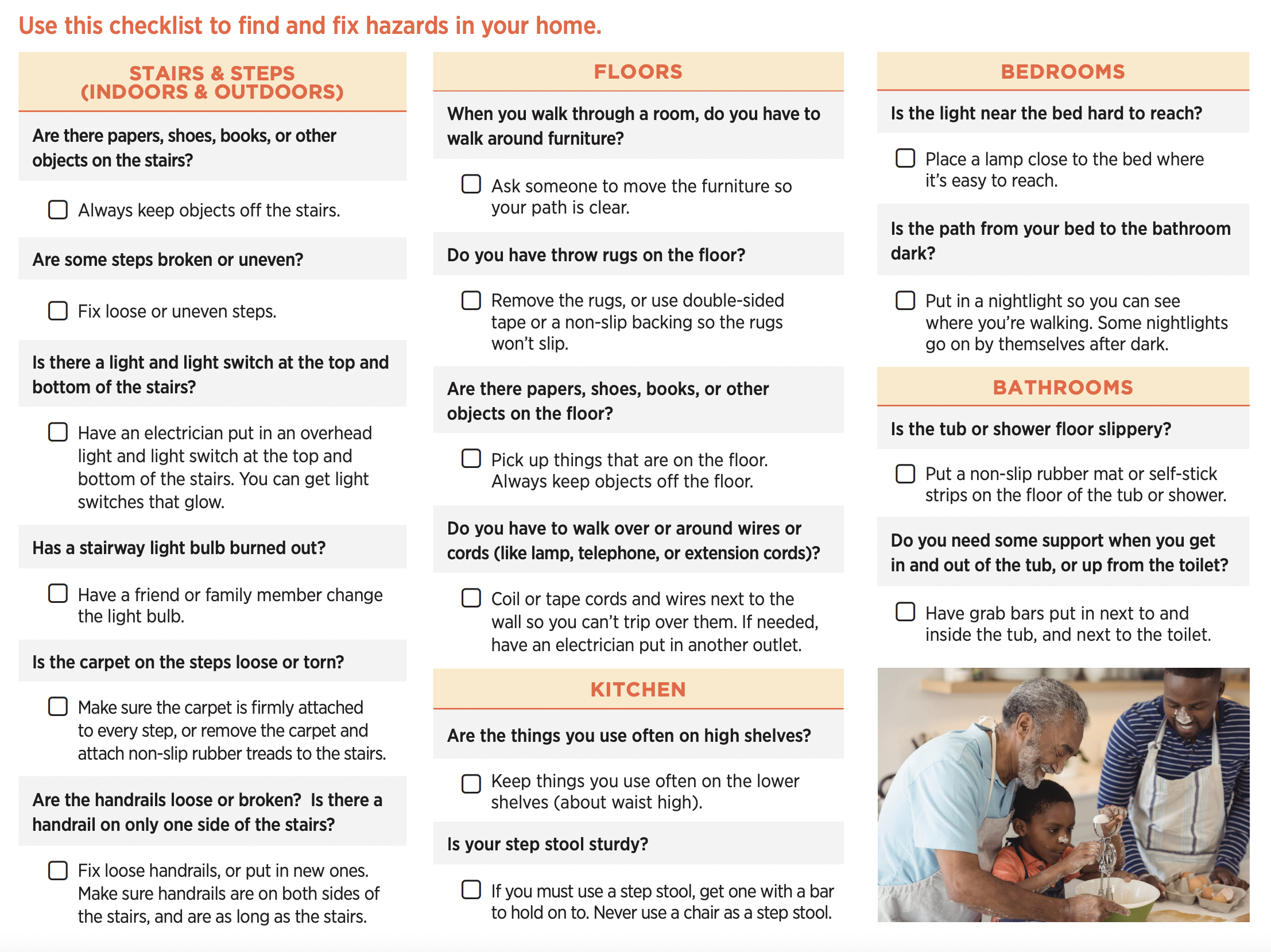Facts About Dementia Fall Risk Revealed
Facts About Dementia Fall Risk Revealed
Blog Article
Dementia Fall Risk - The Facts
Table of ContentsFacts About Dementia Fall Risk UncoveredDementia Fall Risk Fundamentals ExplainedSome Ideas on Dementia Fall Risk You Need To KnowThe smart Trick of Dementia Fall Risk That Nobody is DiscussingFacts About Dementia Fall Risk Uncovered
You could be nervous since you have actually had an autumn before or due to the fact that you've discovered you're beginning to feel unstable on your feet. You could have discovered changes to your health, or just seem like you're reducing down a little. Whatever the reason, it isn't unusual to become cautious and shed self-confidence, and this can quit you doing the points you utilized to do and make you feel more isolated.If you have actually had a fall or you've started to feel unsteady, inform your medical professional also if you really feel great or else. Your medical professional can check your balance and the means you walk to see if enhancements can be made. They might have the ability to refer you for a falls danger assessment or to the drops avoidance solution.
This details can be gotten through meetings with the person, their caregivers, and a review of their clinical documents. Begin by asking the individual about their history of drops, including the frequency and situations of any kind of recent drops. Dementia Fall Risk. Inquire regarding any kind of wheelchair problems they may experience, such as unsteady or trouble strolling
Conduct a detailed testimonial of the individual's medicines, paying certain focus to those understood to boost the danger of drops, such as sedatives or drugs that reduced blood stress. Determine if they are taking numerous medicines or if there have been recent adjustments in their drug program. Assess the person's home environment for prospective hazards that might raise the risk of drops, such as inadequate lights, loose carpets, or absence of grab bars in the bathroom.
Dementia Fall Risk Things To Know Before You Get This
Guide the individual through the fall risk assessment form, describing each concern and videotaping their responses precisely. Determine the overall danger score based on the reactions offered in the evaluation kind.
This strategy may include workout programs to boost toughness and equilibrium, drug adjustments, home adjustments, and referrals to various other experts as needed. On a regular basis check the individual's development and reassess their threat of falls as needed. Modify the treatment plan based upon adjustments in their health and wellness standing or home atmosphere. Offer ongoing education and learning and support to advertise safety and security and decrease the threat of drops in their daily living activities.
Many researches have revealed that physical therapy can aid to decrease the risk of falling in grownups ages 65 and older. In a brand-new study (that considered falls threat in females ages 80 and older), researchers determined the financial impact of selecting physical treatment to stop falls, and they found that doing so saves $2,144, including all the covert expenses of your time, discomfort, missed life events, and the dollars spent for services.
Getting The Dementia Fall Risk To Work
Examining your heart rate and blood pressure measurements at rest and while you alter settings (from sitting or existing to standing). An easy test of your thinking (cognitive) capacities. Assessing your equilibrium, stamina, and walking ability. A simple vision test. Analyzing your feet and shoes. A home safety and security evaluation. Based on about his the assessment results, your physical specialist will certainly make a strategy that is tailored to your particular requirements.
Older adults who have difficulty walking and speaking at the very same time go to a greater risk of falling. Dementia Fall Risk. To assist raise your safety and security during daily tasks, your physical therapist might develop a training program that will certainly challenge you to keep standing and walking while you do another task. Examples consist of strolling or standing while counting in reverse, having a discussion, or carrying a bag of grocery stores
Your physiotherapist likewise can determine which tasks you need to avoid to stay safe. Community-based falls prevention programs help people to: Decrease their concern of falling. Set goals for raising their exercise. Make their homes more secure. Exercise a lot more to boost their toughness and equilibrium. These programs frequently are led by volunteer instructors.
The Ultimate Guide To Dementia Fall Risk

Measles, or rubeola, is an extremely contagious, acute viral infectious condition triggered by the measles infection. Some individuals consider measles as just a rash and fever that cleans up in a couple of days; however, measles can trigger major health and wellness issues, particularly in kids more youthful than 5-years-old. The most effective defense versus measles is the measles, mumps, and rubella (MMR) injection.
Falls are an usual reason of injury amongst older grownups.
Some Of Dementia Fall Risk

She has no background of drops, her stride is stable, and she nullifies with no problems. The previous registered nurse states that she calls for assistance to the restroom when she needs hop over to these guys to go.
Examples of usual autumn interventions/measures consist of: Ensuring an individual's crucial products are within reach. Placing the patient's bed rails up with the alarm system on. Assisting a person while they're getting up from bed. Past understanding just how to utilize the Johns Hopkins Fall Threat Evaluation Tool, it's important that centers include its usage right into a much more thorough autumn avoidance strategy.
Report this page